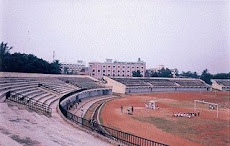Rare and endangered Olive Ridley turtles have started to arrive for mating near Rushikulya rookery in Ganjam district of south
Odisha. Adequate security arrangement has been made for protection of these
endangered turtles. According to Berhampur Divisional Forest Officer (DFO),
S.S.Mishra during past few days sporadic mating of Olive Ridleys was being
observed in sea near the rookery. At present, on an average, around 30 to 40
mating turtle pairs were being observed in the sea. Mating of Olive Ridleys picks up in this area
in last week of December and January. As precautionary measure fishing by
trawlers in the sea near the rookery up to a distance of ten kilometres from
sea coast has been banned from Nov 1 till end of May. This has been done to
enable safe mating, nesting of Olive Ridleys and secure return of turtle
hatchlings after they hatch on the Rushikulya rookery coast.
Forest department has started using two boats to patrol the area to check illegal entry of fishing trawlers into this region. One of these boats was of forest department while the other trawler used for patrolling purpose had been hired. As per the DFO during patrolling some trawlers from Andhra Pradesh had been rounded by the forest department patrols in recent past. They were sent back after warning as they were not found to be fishing. “If after this any fishing trawlers were located in the area where fishing has been banned they would be seized,” said the DFO. With the arrival of Olive Ridleys to this coast, some carcasses of these marine turtles have also started to float down to the Ganjam coast line.
According to forest officials, till now they had located twenty carcasses of the turtles on this coast. Most of them had died of natural causes. Forest officials were too cautious about the fishing trawlers as they were major cause of death of these turtles. Forest department was also arranging for a floating jetty to be established near Purunabandha village to help in patrolling and vigil of the sea during the mating, nesting and hatching time of the turtles. Usually the males return after the mating season. But the females stay near this coast till nesting. They come down to the coast for mass nesting usually from last week of February. But their sporadic nesting starts from end of January. After laying their eggs and burying them in sand, the mother turtles also return. The eggs incubate on their due to the heat of sand and they hatch after 45 days. The newborn hatchlings return back to sea without any assistance from their parents.
Forest department has started using two boats to patrol the area to check illegal entry of fishing trawlers into this region. One of these boats was of forest department while the other trawler used for patrolling purpose had been hired. As per the DFO during patrolling some trawlers from Andhra Pradesh had been rounded by the forest department patrols in recent past. They were sent back after warning as they were not found to be fishing. “If after this any fishing trawlers were located in the area where fishing has been banned they would be seized,” said the DFO. With the arrival of Olive Ridleys to this coast, some carcasses of these marine turtles have also started to float down to the Ganjam coast line.
According to forest officials, till now they had located twenty carcasses of the turtles on this coast. Most of them had died of natural causes. Forest officials were too cautious about the fishing trawlers as they were major cause of death of these turtles. Forest department was also arranging for a floating jetty to be established near Purunabandha village to help in patrolling and vigil of the sea during the mating, nesting and hatching time of the turtles. Usually the males return after the mating season. But the females stay near this coast till nesting. They come down to the coast for mass nesting usually from last week of February. But their sporadic nesting starts from end of January. After laying their eggs and burying them in sand, the mother turtles also return. The eggs incubate on their due to the heat of sand and they hatch after 45 days. The newborn hatchlings return back to sea without any assistance from their parents.
Source: The Hindu


















.jpg)


















































No comments:
Post a Comment